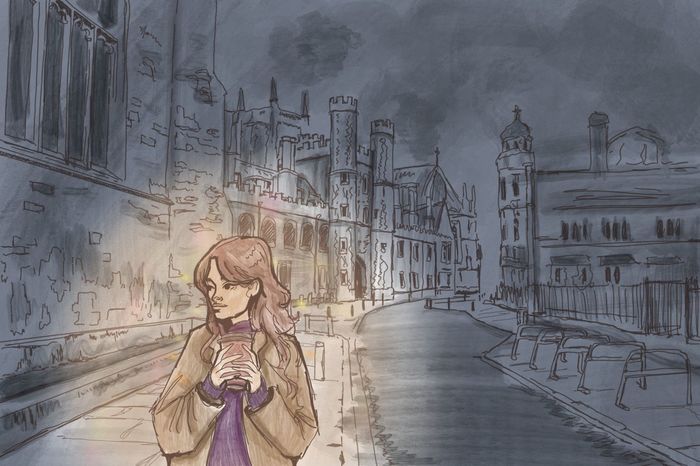All I want for Christmas is tof(u)
Alex Lee ponders the potential of meat-free alternatives to topple the hegemony of the Christmas turkey

Animal rights activists recently staged a protest in the centre of Cambridge, urging the public to re-think turkey consumption amid the mass killing of turkeys around Christmas time. While roast turkey is sacrosanct to many at this time of year, these activists remind us that it doesn’t have to be. To me, this presents an important lesson regarding tradition in the realm of cuisine.
To understand the significance of the Christmas turkey, we must first travel across space and time to understand how it became such a venerated food item. Just like many other animals and plants which frequent the modern British plate, turkeys are not in fact native to Britain. Along with potatoes, tomatoes and peppers (to name just a few), turkeys were shipped from what is now Mexico by colonists during the Columbian exchange, with the first of them being brought over in the early 1500s. For those at any of the 13 oldest colleges (up to and including St John’s), it is likely that your college was founded before the first ever turkey set foot in Britain.
“For those at any of the 13 oldest colleges (up to and including St John’s), it is likely that your college was founded before the first ever turkey set foot in Britain”
While this already places the recency of turkey as a food in Britain into context, it is important to consider that it did not become a Christmas staple for another several centuries. It was only in the 1930s that turkey became the preeminent component of a Christmas roast. Before this, it was an expensive and inaccessible food almost exclusively enjoyed as a luxury by the elite. While many may be strongly attached to the roast turkey as a Christmas staple and tradition, we ought to remember that such culinary traditions are often fairly recent, contingent historical developments.
Fast forward to today, and this has many implications for the future of Christmas cuisine and our diets more generally. The appearance of the roast turkey in the British imagination as the ‘classic’ Christmas dinner is reminiscent of the way that meats have emerged as staple, unnegotiable components of many cuisines. Whilst meat consumption for some may be infrequent and a matter of necessity, many eat meat in great quantities simply because…it’s a tradition that they enjoy?
“While many may be strongly attached to the roast turkey as a Christmas staple and tradition, we ought to remember that such culinary traditions are often fairly recent, contingent historical developments”
I for one am tired of fundamentalist ideas of ‘traditional’, ‘authentic’ cuisine being used as a pretext for excessive meat consumption. As trips across the pond to the motherland (France) or across Parker’s Piece to Mill Road restaurants can attest, some places do love to give vegetarians, vegans or even meat eaters looking to reduce their meat consumption a hard time choosing dishes in their quest to achieve authenticity. To my French brethren, the vast majority of you are not elite weightlifters - there is absolutely no need for shops and markets to sell so much saucisson. Meat-heavy cuisine is a contingent and often recent phenomenon, not an inherent and inevitable tradition - it should not be an affront to one’s national pride to make a push towards reduced meat consumption and more plant-based foods.
Though I find it sad that many people’s enjoyment of Christmas dinner and food more generally is so heavily determined by the presence of meat, the efforts of activists to challenge the consumption of roast turkeys at Christmas makes me optimistic about the potential of meat-free alternatives to infiltrate the future pathway of cuisines and become mainstream options. Just as the turkey rewrote British culinary tradition and entered British hearts and minds as an ahistorical, authentic and non-negotiable part of Christmas dinner, I am hopeful that one day a landmark meat-free staple food can have the same transformative effect on our cuisine - and not just at Christmas time. Roast turkey may keep its throne for now, but the 2030s could be the decade when its century-long culinary hegemony is toppled by the alliance of nuts, tofu, jackfruit and co.
 News / Clare Hall spent over £500k opposing busway 24 December 2025
News / Clare Hall spent over £500k opposing busway 24 December 2025 News / Caius mourns its tree-mendous loss23 December 2025
News / Caius mourns its tree-mendous loss23 December 2025 Comment / The ‘class’ of Cambridge24 December 2025
Comment / The ‘class’ of Cambridge24 December 2025 Comment / Yes, I’m brown – but I have more important things to say22 December 2025
Comment / Yes, I’m brown – but I have more important things to say22 December 2025 Interviews / Politics, your own way: Tilly Middlehurst on speaking out21 December 2025
Interviews / Politics, your own way: Tilly Middlehurst on speaking out21 December 2025










